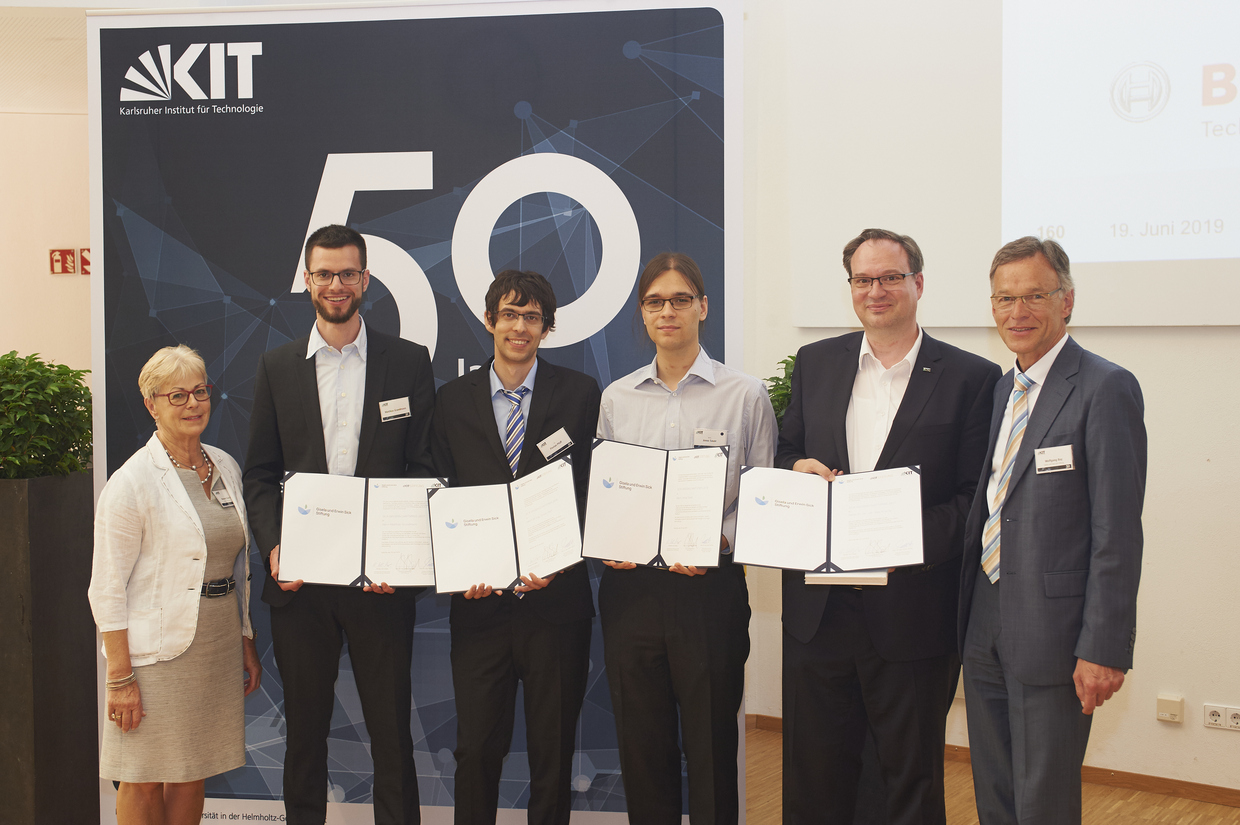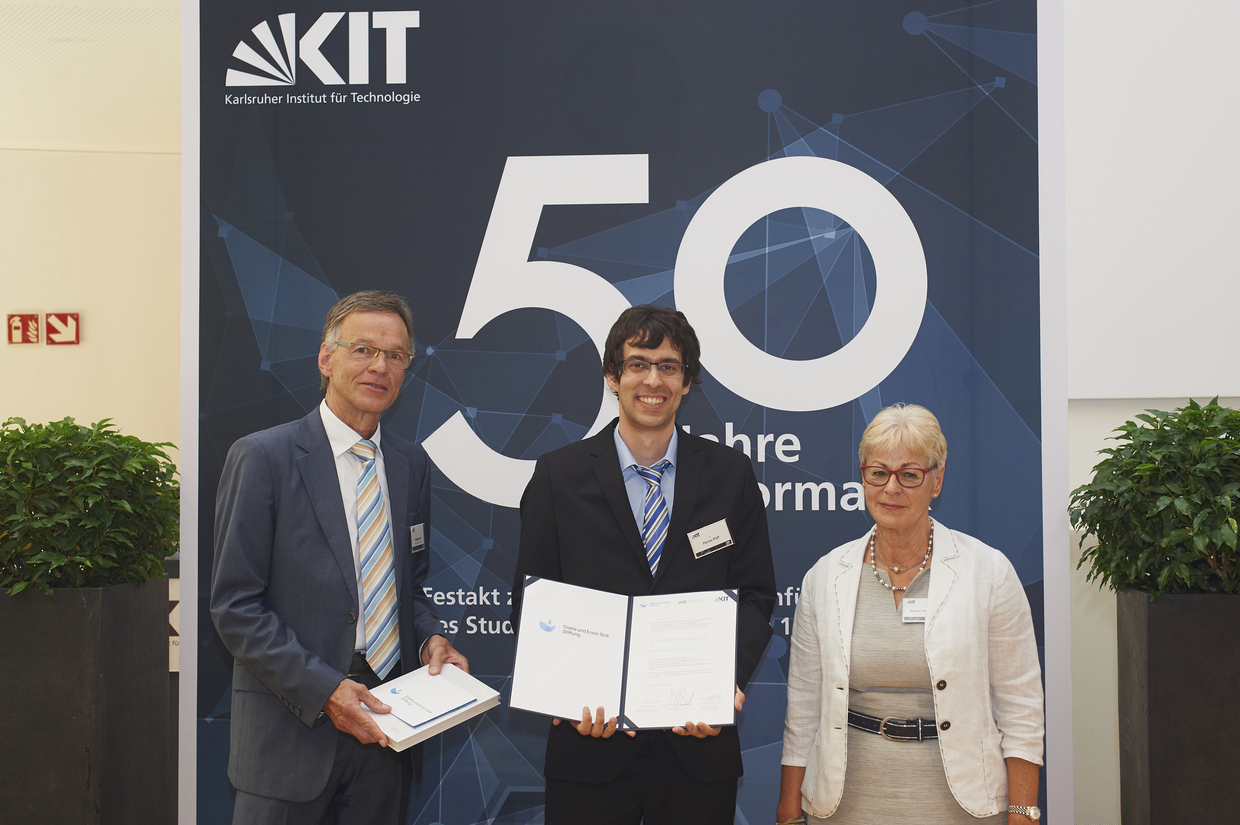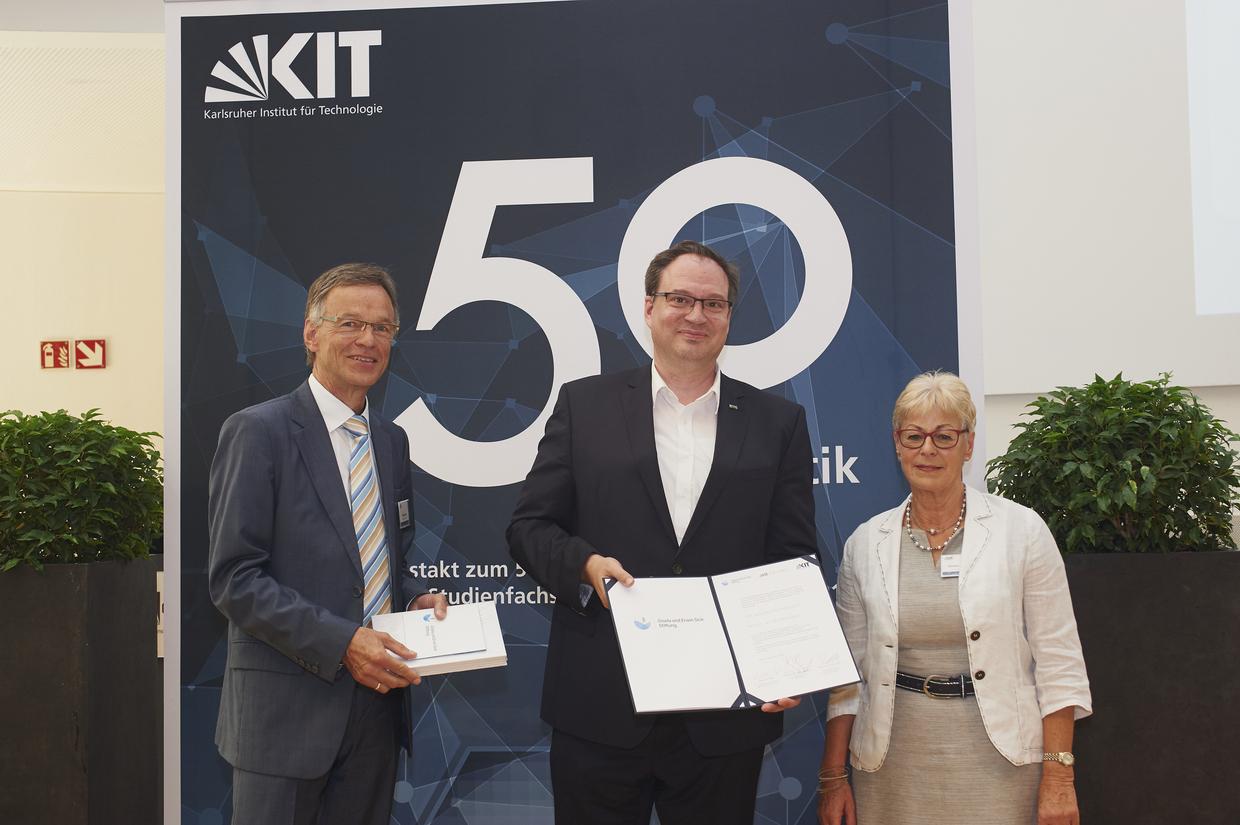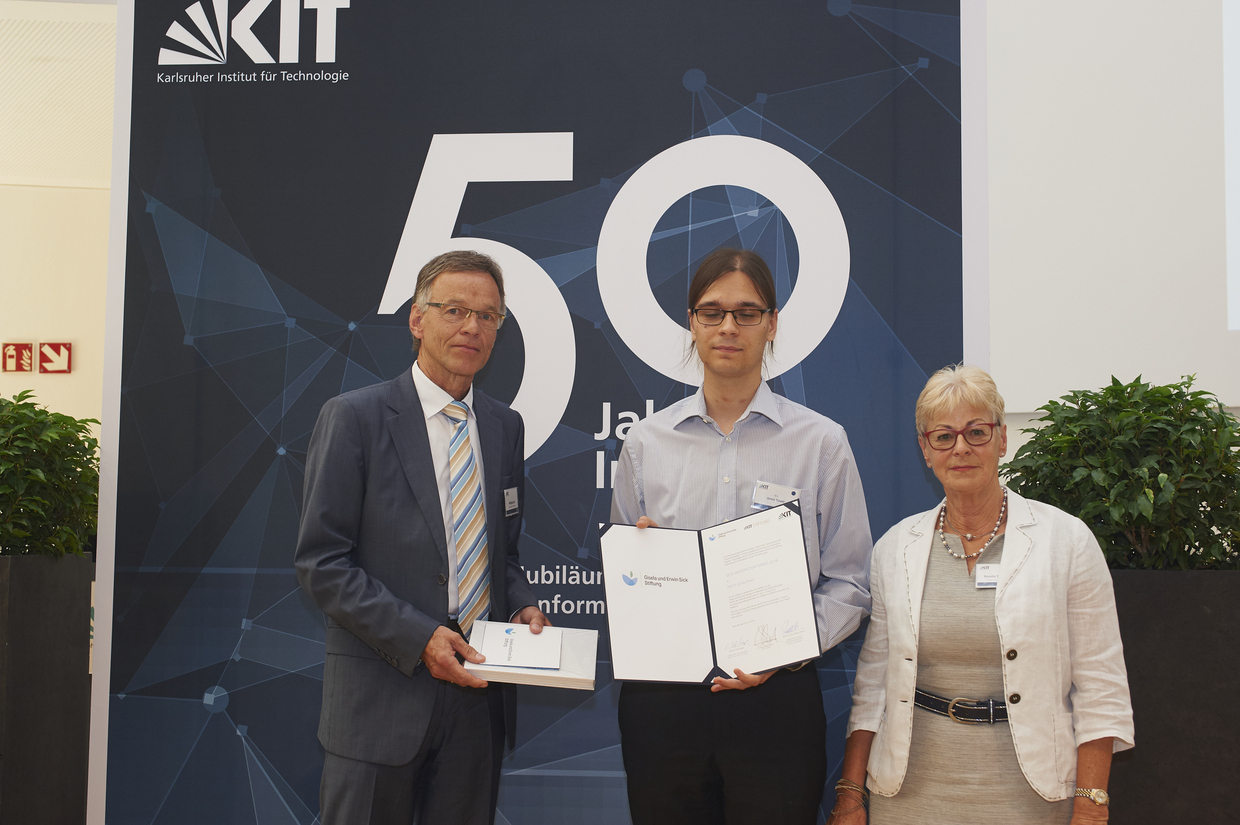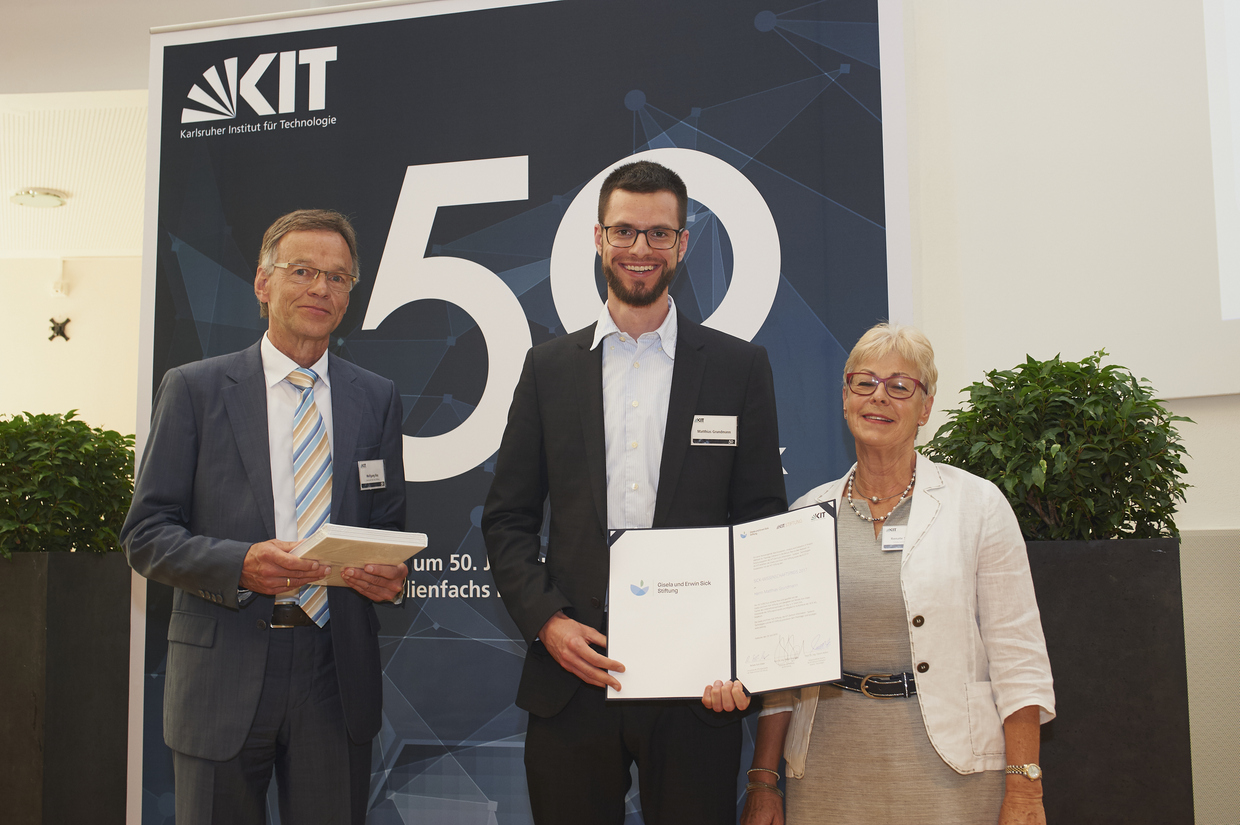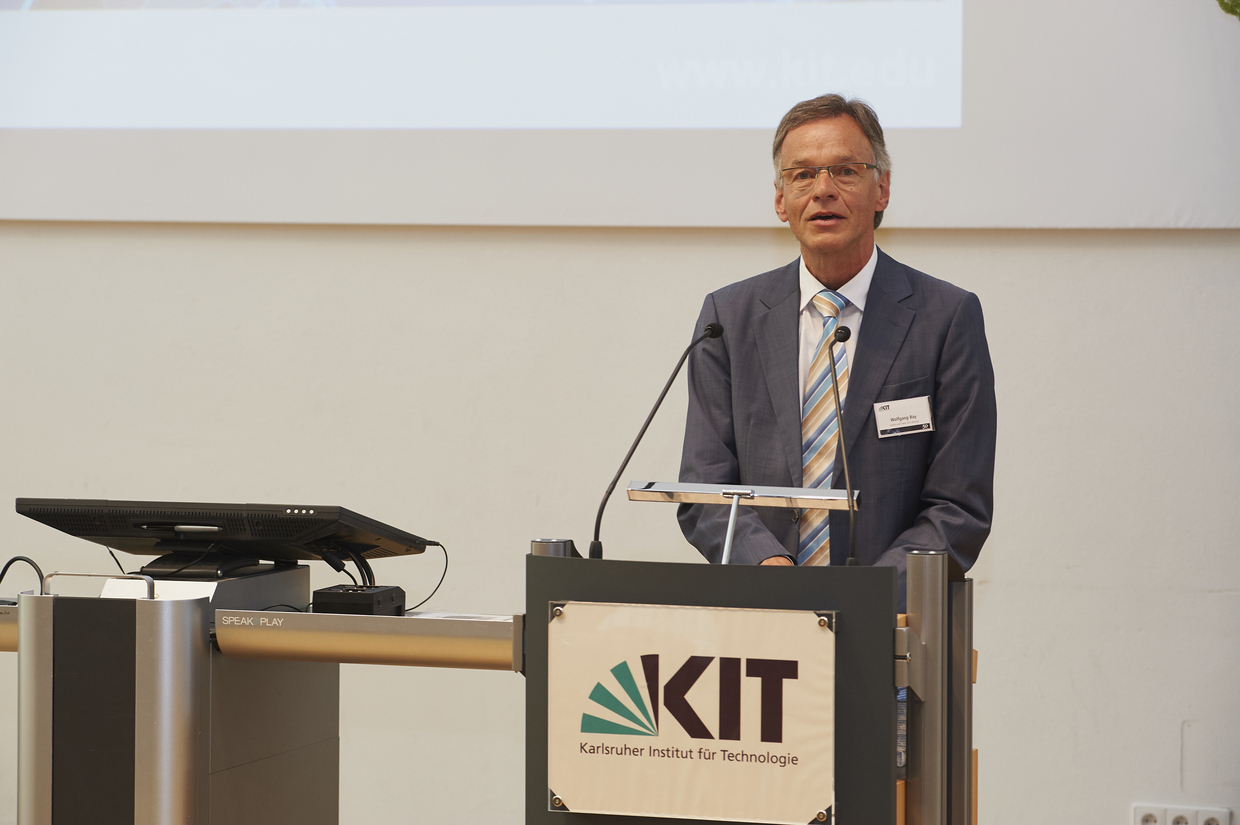Award ceremony of the Science Award at KIT 2017/18 during 50 Years of Computer Science
On Wednesday, June 19, 2019, the KIT Center for Information Systems Technologies (KCIST), in cooperation with the Gisela and Erwin Sick Foundation, honored the best thesis and dissertation of the years as part of the celebration of "50 Years of Computer Science" at KIT 2017 and 2018. Both basic scientific research as well as application-oriented work assigned to the KCIST research area could be awarded.
The prize for the best dissertation was endowed with a total of € 7,000 and the best final thesis with € 3,000.
The awards were presented during the academic celebration by Ms. Renate Sick Glaser, the daughter of the company's founder, Dr.-Ing. e.h. Erwin Sick, who is also the chairman of the board of the SICK Foundation and a member of the supervisory board of SICK AG, and by Mr. Wolfgang Bay, the representative of the foundation board.
The SICK Science Prize honors young people for their outstanding commitment to science and research.
The award for the best thesis 2017 went to Matthias Grundmann, which was entitled "Analysis and Evaluation of Analysis Methods for Topology Inference in the Bitcoin Peer-to-Peer Network". In his master's thesis he dealt with the IT security of Bitcoin and succeeded in experimentally proving a method that enables the exact detection of the topology in Bitcoin networks.
Jonas Sauer's master's thesis entitled "Faster Public Transit Routing with Unrestricted Walking" received the award for the best thesis in 2018. In his work, he developed an innovative and efficient timetable information process that can be transferred to any timetable-independent means of transport and thus represented a breakthrough in the development of algorithms for multimodal route planning.
The award for the best dissertation went to Dr. rer. nat. Max Kramer (2017) and Dr.-Ing. Florian Pfaff (2018).
The award for the best dissertation went to Dr. rer. nat. Max Kramer (2017) and Dr.-Ing. Florian Pfaff (2018). The dissertation of Dr. Kramer, entitled “Specification Languages for Preserving Consistency between Models of Different Languages”, deals with the development of complex information technology systems, which often require the use of several programming and modeling languages. This often leads to inconsistencies and thus to faulty designs and implementations. Dr. Kramer succeeded in developing an outstanding formal solution for efficient consistency maintenance, which also has extensive possibilities for the use of the method in everyday systems.
The excellent dissertation by Dr. Pfaff is entitled "Multitarget Tracking Using Orientation Estimation for Optical Belt Sorting". In his work he developed a novel method for tracking several objects on bulk material belts in order to make the sorting of the particles in belt sorting systems more efficient. This work thus combines scientific excellence with informative and practically applicable research results that can also be used in other applications of information processing, robotics and other sciences such as geodesy and biology.
Text: Christine Grinewitsch
Translation: Franziska Vogel
Gisela and Erwin Sick Foundation
The Gisela and Erwin Sick Foundation was founded in 2002 by Gisela Sick, the widow of Dr.-Ing. e. H. Erwin Sick, the founder of SICK AG. The range of funding offered by the Freiburg-based foundation encompasses the areas of youth and upbringing, education, vocational training, and science and research. In recognition of the life's work of her deceased husband, an inventor and pioneer in the field of opto-electronics, Gisela Sick places a special focus on natural sciences and technology in her foundation activities with the aim of making a contribution to securing Germany as a location for technology and future research.
To promote young talent in the MINT science fields, the foundation awards sponsorship prizes at the technical universities in Hamburg, Dresden and Karlsruhe, at the universities of Offenburg, Furtwangen and Konstanz as well as at the dual universities in Villingen-Schwenningen and Lörrach. The Foundation also awards Germany Scholarships.

